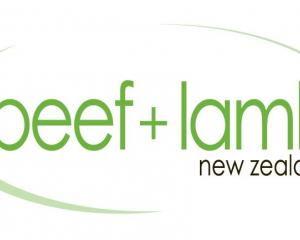
The McNamee family first planted hops on their Garston property in 2016 and now have 45,000 plants over 15ha with thousands more in a nursery, yet to be planted.
Garston Hops is having an open day today and Mr McNamee hopes to encourage other Southland farmers to consider planting hops and create a "hops hub" in the area.
It was while having a beer with a mate one day that he started thinking about how craft brewers in New Zealand were struggling to get New Zealand-produced hops and he thought it was a shame beer was being made with imported hops.
He looked at the latitude of where hops were grown around the world, including major hop-growing regions such as the Czech Republic and Kent in England, and discovered it lined up more in the South than the Tasman, the country’s main hop-growing region.
The hop operation had continued to expand on the McNamee farm alongside a more traditional farming operation and a haybarn had been converted into a temporary processing shed. The family has been on the land for more than 140 years.
The purpose of the open day was to show farmers what Garston Hops was doing and encourage them to "come on the journey", Mr McNamee said.
There was interest in farm diversification particularly given the pressures farmers faced with new legislation coming in. Hops were easier on the land and easier for the farmer, and could be grown alongside livestock farming so it was a "win win".
Garston Hops had proven hops grew well in the South — the plants liked daylight hours and there was an hour to an hour and a-half more of that than in the Tasman area.
The learning curve had continued since first planting hops and a lot of that was around having the infrastructure in place for harvesting and getting the balance right as the operation expanded. It was also very capital-intensive.
Terroir — how a particular region's climate, soils and aspect (terrain) affected the taste of wine — also affected hops. Last year, craft brewery Altitude Brewing in Queenstown brewed two batches of beer, using the same recipe and flavour of hops, and the Garston hops had a different taste.
Brewers described it as more citrusy and punchy, he said.
This year, Garston Hops was supplying breweries in Queenstown and Wanaka and it was keen to get several more on board.
Quipping that it was "a bit like KFC and McDonald’s — they always go well together" — Mr McNamee said he did not see other farmers as competition.
Rather, he hoped they could work together to create a hops area, utilising a community processing shed.
The open day would include a question and answer discussion followed by a tour around the farm.
He hoped to put a pack together to help support farmers to venture into hops, outlining how to get set up. He wanted to help others, just as Garston Hops had received help from Tasman growers.
Embarking on the hops journey had been fun and he had no regrets, he said.
The Garston community had shrunk over the past 50 years as farms had amalgamated and he hoped the hops initiative could potentially draw more people to it.















